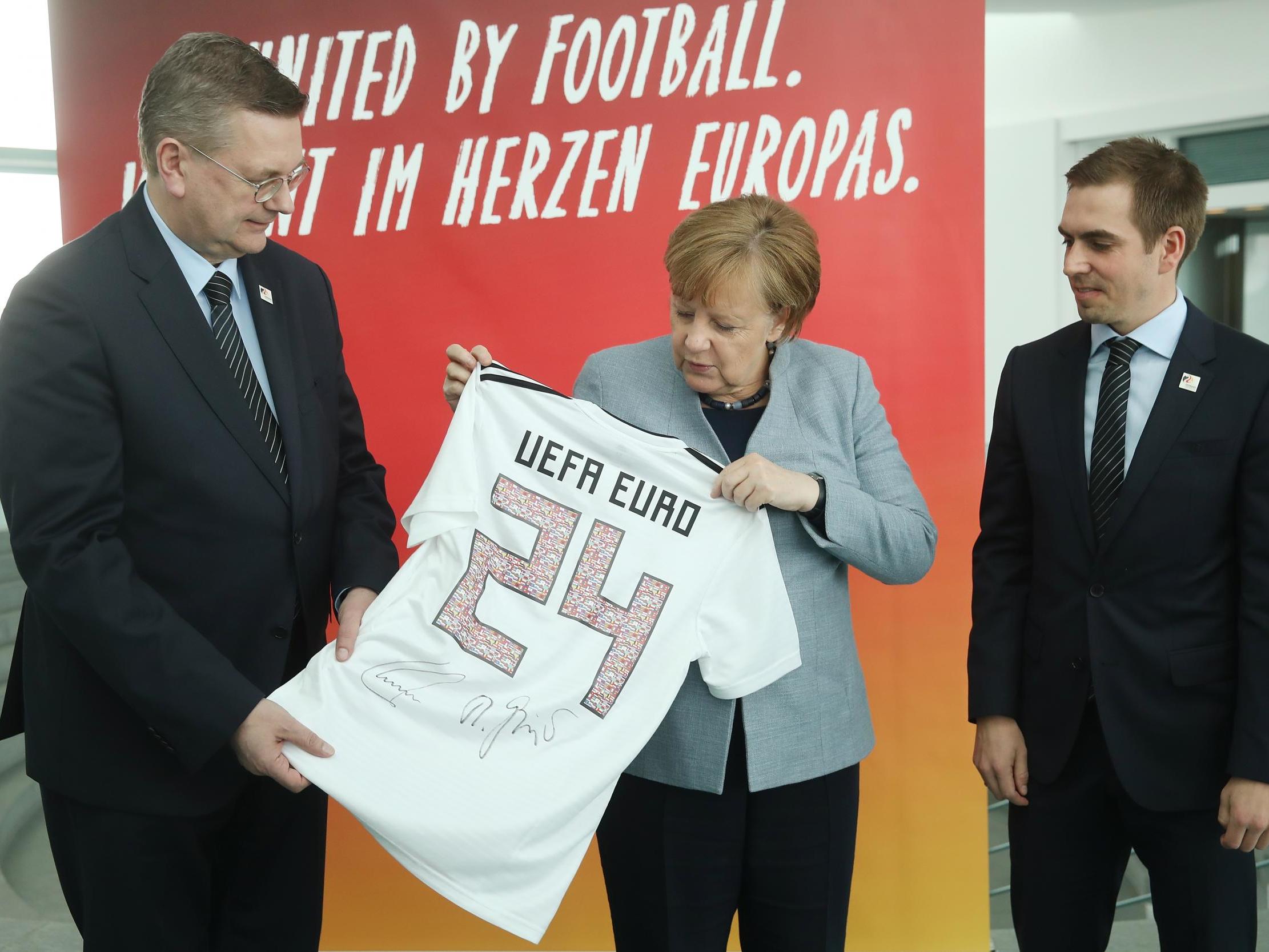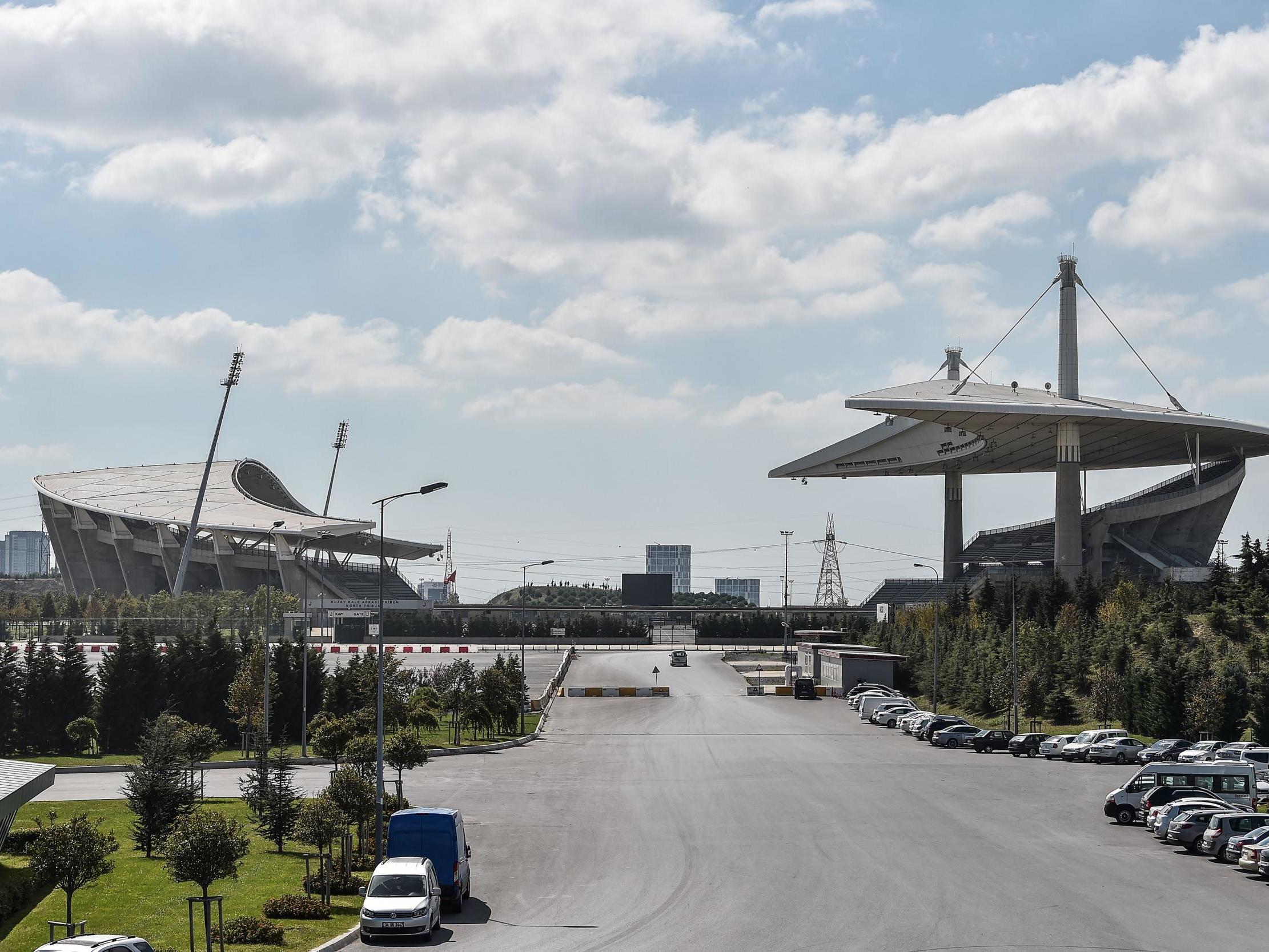Germany or Turkey? The Euro 2024 bid goes beyond realism and romance
Whereas Germany is no doubt ready to host a tournament, Turkey offers something very different - but there numerous factors which must be taken into account

Your support helps us to tell the story
From reproductive rights to climate change to Big Tech, The Independent is on the ground when the story is developing. Whether it's investigating the financials of Elon Musk's pro-Trump PAC or producing our latest documentary, 'The A Word', which shines a light on the American women fighting for reproductive rights, we know how important it is to parse out the facts from the messaging.
At such a critical moment in US history, we need reporters on the ground. Your donation allows us to keep sending journalists to speak to both sides of the story.
The Independent is trusted by Americans across the entire political spectrum. And unlike many other quality news outlets, we choose not to lock Americans out of our reporting and analysis with paywalls. We believe quality journalism should be available to everyone, paid for by those who can afford it.
Your support makes all the difference.Within the German team for their Euro 2024 bid, there is confidence they can win the vote on Thursday, but it’s not completely concrete. That is because, as easy as it would be for the country to host a tournament “tomorrow”, they know there are a lot of complications to this that reflect changes in the greater football world.
Hovering over much of the bid - and everything in German football right now - has been Mesut Ozil’s retirement from the international team in the wake of the World Cup first-round exit and the connected controversy over his photo with Turkish president Recep Erdogan. The playmaker felt he had been made a scapegoat for the calamity in Russia and, in a statement highly critical of the German federation, cited anti-Turkish “racism”.
And Germany’s sole opponents for the 2024 bid? Turkey, the country of Ozil’s descent, where their bid has made some capital from the recent dispute surrounding the midfielder.
Much wider social and global forces have meanwhile made the issue of dual - or, really, multiple - nationality one of the most prominent at international level now. The Turkish bid has been largely based on seizing this spirit of change, of a much more diverse football world that challenges old truths and orders.
“We hope Uefa will vote for a change so this tournament goes to a new nations like Turkey,” Servet Yardimci, vice president of the country’s football federation, said recently. “We can show the world how successful we can be in delivering this tournament.”
This touches on another huge issue at such levels, and one that already underwent something of a shift this summer. Because, really, the majority of the last few such votes have gone to new nations.
Euro 2012 went to Poland/Ukraine, 2018 to Russia, 2020 to at least a few new countries in Azerbaijan, Hungary, Ireland, Romania and Scotland and then - most infamously - 2022 to Qatar.
The latter of course prompted such a debate about its suitability as a host, only for that debate to get further entangled in the intricacies of international politics, leading to a lot of trepidation about the 2026 World Cup bid.
That, however, bucked the trend. It went to the most realistic bid, in North America, rather than the most romantic bid, in Morocco.

This is what any potential England 2030 move is banking on, especially if they’re up against the symbolic and nostalgic centenary choice of Argentina-Uruguay, and this is at the centre of the 2024 vote.
If a second successive major tournament goes to the best prepared country - which invariably tends to be one of the wealthiest, who have held an event before - it will prove the climate of football politics has changed. It will prove, in the words of DFB president Reinhardt Grindel, “that the quality of the bid is the only important thing to win”.
And there can’t really be any country better prepared than Germany, leading to the oft-repeated line - and one that’s not really a joke - that they could host pretty much any tournament at a moment’s notice.
There is no real comparison between the 2024 bids in that regard, just like with 2026, and as Uefa’s bid evaluation report makes clear.
Germany’s bid would barely require any investment, in either stadiums or infrastructure. The only slight wrinkle is that Dortmund might have to make use of campsites. That's it.
That is far from the case with Turkey.
Despite recent refurbishments to fine new stadiums, two of the 10 put forward would require significant construction work. The Ataturk - that hosted the 2005 Champions League final - would have to be completely rebuilt, but that would hardly be a white elephant, as is often the issue with such bids.
Of greater concern is how convenient it would be for hundreds of thousands of supporters descending on the country. Some of the venues have a dearth of hotels, and there isn’t even a rail link to Trabzon in the north-east of the country, with an eight-hour drive to the next venue.

Uefa’s report has described this as a “risk” - particularly as regards whether improvements would even be ready in time - and the limited hotel capacity as an issue.
For all of the furore surrounding Ozil, too, that itself is far overshadowed here by the European governing body’s statement that Turkey’s “lack of an action plan in the area of human rights is a matter of concern”.
Under such a regime as Erdogan’s, that somewhat undercuts the universalist claims of Turkey 2024 to be a championships that can "inspire a wider audience, especially the large youth population, to become involved in football … thanks to its location between three continents”.
And yet for all that, this is a vote that is expected to be very narrow. Whereas the bidding process for the World Cup was an open vote by all members, Euro 2024’s host will be decided in a secret vote by Uefa’s 16-member Executive Committee. That takes place in Geneva on Thursday. While the majority come from western Europe, with that notionally favouring Germany, no one in the DFB’s bid is taking anything for granted.
There is then the greater issue of how much this will bring in for Uefa. Germany’s greater stadium capacity might be offset by Turkey’s more favourable tax approach to the hosting of any tournament.
That indicates isn’t quite a straight choice between realism and romance, and it’s not a straightforward decision either.
Join our commenting forum
Join thought-provoking conversations, follow other Independent readers and see their replies
Comments